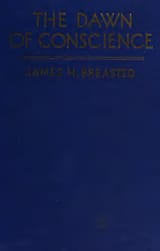Search Results
8/2/2025, 12:47:58 AM
>... the most extraordinary revelation has been the fact that the Wisdom of Amenemope, preserved in an Egyptian papyrus in the British Museum, was translated into Hebrew in ancient times and, circulating in Palestine, was the source for a whole section of the Old Testament Book of Proverbs.
>How many modern clergymen, requested to preach before some convention of business men, have taken as text the quotation from the Book of Proverbs “Seest thou a man diligent in business, he shall stand before kings”? It is not likely that any such clergyman ever prefaced his sermon with the observation that this text was taken by the Hebrew editor of Proverbs from a much older Egyptian book of moral wisdom. This discovery has added profound significance to the fact that civilised development in the countries surrounding Palestine was several thousand years earlier than that of the Hebrews.
>It is now quite evident that the ripe social and moral development of mankind in the Nile Valley, which is three thousand years older than that of the Hebrews, contributed essentially to the formation of the Hebrew literature which we call the Old Testament. Our moral heritage therefore derives from a wider human past enormously older than the Hebrews, and it has come to us rather through the Hebrews than from them. The rise of man to social idealism took place long before the traditional theologians’ “age of revelation” began. It was a result of the social experience of man himself and was not projected into the world from the outside.
>--James H. Breasted, The Dawn of Conscience, 1933
>How many modern clergymen, requested to preach before some convention of business men, have taken as text the quotation from the Book of Proverbs “Seest thou a man diligent in business, he shall stand before kings”? It is not likely that any such clergyman ever prefaced his sermon with the observation that this text was taken by the Hebrew editor of Proverbs from a much older Egyptian book of moral wisdom. This discovery has added profound significance to the fact that civilised development in the countries surrounding Palestine was several thousand years earlier than that of the Hebrews.
>It is now quite evident that the ripe social and moral development of mankind in the Nile Valley, which is three thousand years older than that of the Hebrews, contributed essentially to the formation of the Hebrew literature which we call the Old Testament. Our moral heritage therefore derives from a wider human past enormously older than the Hebrews, and it has come to us rather through the Hebrews than from them. The rise of man to social idealism took place long before the traditional theologians’ “age of revelation” began. It was a result of the social experience of man himself and was not projected into the world from the outside.
>--James H. Breasted, The Dawn of Conscience, 1933
Page 1
